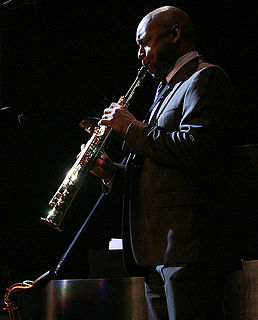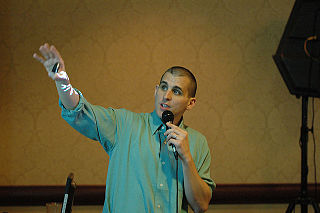A Quote by George Saunders
The only thing I might have noticed [and this is pretty anecdotal] is that there is some tendency to need to be taught that 'writing is rewriting' - maybe more of a sense than was pervasive 10 years ago that the first or second pass of a story is sufficient. That is an idea that is easily dislodged, but I suspect it might have something to do with the turnaround time re: blogging and so on - this sense that there is some essential truth about a first draft that one runs the risk of "ruining" by coming back to it.
Quote Topics
About
Anecdotal
Back
Blogging
Coming
Coming Back
Draft
Easily
Essential
First
Idea
Maybe
Might
More
Need
Noticed
Only
Pass
Pervasive
Pretty
Rewriting
Risk
Runs
Second
Sense
Some
Something
Story
Sufficient
Suspect
Taught
Tendency
Than
The Only Thing
Thing
Time
Truth
Turnaround
Writing
Years
Years Ago
Related Quotes
I taught everyone a very bad lesson at my publisher because they actually gave me deadlines this time and I'm now meeting them. I used to say, "Here's my book; it's six years late." I'm so much faster now, and work differently. With all the years of writing, I think I still draft as obsessively, but I think back to writing. On your first story, you start at draft one. On your second story, you start at draft ten. On your third story, you start at draft one hundred. If you need a hundred and eight drafts, you may write eight instead of a hundred and eight.
I am a technophile, so there is no such thing as a first draft. The first draft plunges on, and about a quarter of the way through it I realise I'm doing things wrong, so I start rewriting it. What you call the first draft becomes rather like a caterpillar; it is progressing fairly slowly, but there is movement up and down its whole length, the whole story is being changed. I call this draft zero, telling myself how the story is supposed to go.
To me, what I love about the draft is; first, you see the young men who are realizing their dreams that they've worked so hard for. That's a pretty cool thing. You saw the emotion from some of these guys the other day. And then, the second thing is this total sense of hope and optimism. And, I think that's great for everybody.
The Supreme Court said nothing about silliness, but I suspect it may play more of a role than one might suppose. People are, if anything, more touchy about being thought silly than they are about being thought unjust... Probably the first slave ship, with Negroes lying in chains on its decks, seemed commonsensical to the owners who operated it and to the planters who patronized it. But such a vessel would not be in the realm of common sense today. The only sense that is common, in the long run, is the sense of change.
I never intended to have a career as a journalist, writing about people who make movies. I did it as something that was really rewarding to do, given the opportunity to express myself about something I cared about, and also to learn a lot by watching filmmakers I admired. In a sense, it was my film school. After doing it for a few years, I decided that the time had come to get it together and do some work of my own. Even for a cheap movie, you need film stock and equipment and actors. Whereas to write, all you need is paper and an idea, so I felt that writing might be my stepping stone.
In some sense, what you might have suspected from the first day of high-school chemistry is true: The periodic table is a colossal waste of time. Nine out of every 10 atoms in the universe are hydrogen, the first element and the major constituent of stars. The other 10 percent of all atoms are helium.
Almost all good writing begins with terrible first efforts. You need to start somewhere. Start by getting something-anything-down on paper. A friend of mine says that the first draft is the down draft-you just get it down. The second draft is the up draft-you fix it up. You try to say what you have to say more accurately. And the third draft is the dental draft, where you check every tooth, to see if it's loose or cramped or decayed, or even, God help us, healthy.
Good writing is writing and rewriting and rewriting and rewriting. Sometimes, it happens to work right away, and that's amazing. But most of the time, it happens to work, and then you rewrite and rewrite and rewrite, and maybe it even comes back to the thing it was in the first place, but then you know for sure that it is good, and it's what you wanted to do.
If somebody asked for the first draft of something I'd written, it'd probably be pretty close to whatever got published. I get enjoyment out of writing, but I get absolutely no enjoyment out of rewriting, so I don't do much of it. The more you work on something, certainly, the better it gets. But there's also a pretty clear law of diminishing returns.
Perhaps if there is anything remotely interesting about my writing style, it is this: more often than not I have no idea what the story is going to be about. Sometimes I have a fuzzy vision, or a glimpse of one scene, or a character. But mostly all I have is a random first sentence, and I follow it to see where it might go. For me, writing is the process of discovery, of gradually figuring out what happens in the story and how it ends, that makes writing an interesting process for me.
People who truly have control over time always have some in their pocket to give to someone in need. A sense of priorities drives their use of time and it can shift away from the ordinary work that’s easy to justify, in favor of the more ethereal, deeper things that are harder to justify. They protect their time from trivia and idiocy; these people are time rich. They provide themselves with a surplus of time. They might seem to idle, or relax more often than the rest, but that just might be a sign of their mastery, not their incompetence.






































